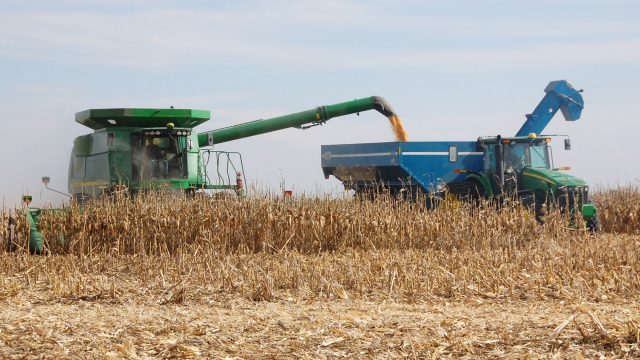North Dakota Farm Bureau: Let Bad Farmers Fail
The North Dakota Farm Bureau opposes a new loan program from the Bank of North Dakota aimed at helping farmers hurt by low crop prices.

Recently the North Dakota Industrial Commission – made up of Governor Jack Dalrymple, Attorney General Wayne Stenehjem, and Agriculture Commissioner Doug Goehring – announced a $300 million low interest loan program to assist farmers hit by low crop prices.
Borrowers must be residents of North Dakota whose principal occupation is farming. To qualify they must prove a cash flow shortage in 2014 or 2015 and must be approved for an operating line of credit in 2016.
But the North Dakota Farm Bureau doesn’t like the program. They say it will ‘prop up’ failing farms, and drive up land prices, making it harder for younger farmers to enter the industry. I wrote about it over at Watchdog:
“I find it ironic that our Legislature and the Bank of North Dakota have been trying to develop lending options to assist young farmers and ranchers, and the Industrial Commission turns around and initiates a program that will distort land prices and the availability of land,” Lies told Watchdog. “The only thing accomplished with this program is placing a competitive disadvantage upon young people trying to enter agriculture.” …
“When some business operators make poor decisions, it opens the door for other businesses to fill that gap. By artificially propping up businesses, in this case, select farmers, ranchers and agricultural lenders, our Industrial Commission is allowing certain operators to circumvent the free market’s natural fluctuations and is effectively limiting opportunities for others,” Lies said.
That sounds about right to me. The points about distorting land prices and availability seems particularly apt to me. It seems like this program might do a lot to keep marginal farming businesses running, using up land that could maybe pass to farming business that might do a better job.
The government often forgets, in its rush to protect the status quo from harm, that failure can be as important to the health of the economy as success. If a given economy is to evolve and improve, that is.




